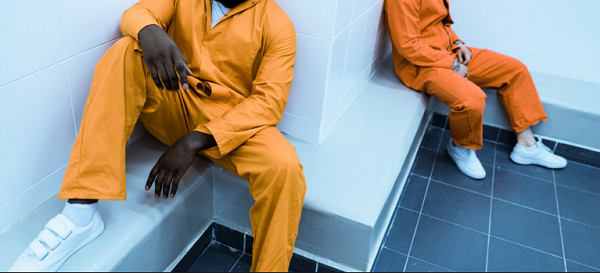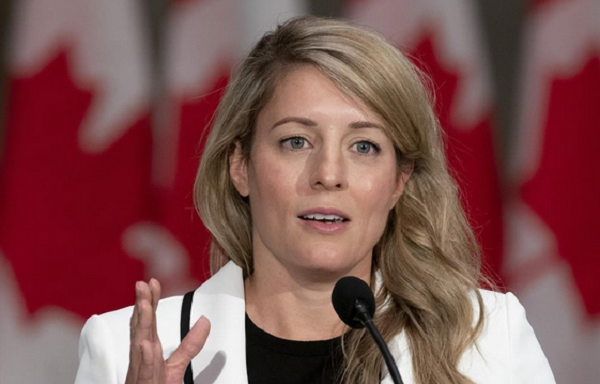Don’t jail ‘high-risk’ migrants in federal prisons, former liberal ministers call on Trudeau
Two former Liberal cabinet ministers are urging the Trudeau government to cancel its plans to start using federal prisons to hold immigration detainees, citing a recent inquest recommendation to end the practice of detaining migrants in jails.
Lloyd Axworthy, a former foreign affairs minister, and Allan Rock, who was a justice minister, have joined a chorus of 85 Canadian and international organizations opposing the spring budget’s proposal to use federal prisons to detain “high-risk” migrants after all 10 provinces said they were ending their agreements to hold them in their facilities.
“We cannot allow unjustified fears and unsubstantiated claims about public security to override our respect for human rights,” said Rock and Axworthy, in an open letter released Monday. Axworthy is chair of the World Refugee and Migration Council.
“Asylum seekers and migrants should be welcomed to Canada with dignity and respect, not dehumanized and detained.”
Calling Canada’s immigration detention system “deadly,” the two said at least 17 people have died in immigration detention since 2000, including most recently a person held in a Surrey immigration holding centre in B.C. on Dec. 25, 2022. They referenced the 2023 coroner’s inquest into the death of Abdurahman Ibrahim Hassan.
Hassan, a former refugee from Somalia with a long history of mental illness, had been held in Central East Correctional Centre, a maximum-security jail in Lindsay, Ont., for years awaiting deportation. He was found unresponsive in a segregated cell there and taken to hospital, where he later died under the watch of two police officers in 2015.
The inquest jury called on the federal government to end the practice of housing immigration detainees in provincial jails, among its 53 recommendations.
“The inquest highlighted the disturbing conditions that Mr. Hassan endured before his death, including solitary confinement and indefinite detention,” said the letter signed by the two former ministers. “Federal prisons are not the answer.”
Groups led by Human Rights Watch and Amnesty International launched a campaign in 2021 to lobby provinces to stop holding the detainees in their jails for breaking immigration laws.
In March, the campaign reached a milestone when Newfoundland and Labrador became the last province to commit to end its immigration detention agreements and arrangements with the Canada Border Services Agency, hoping to push Ottawa to work toward ending the practice altogether.
Instead, in its latest budget, Ottawa committed $325 million over five years to upgrade immigration holding centres and proposed to amend the Corrections and Conditional Release Act and the Immigration Act to enable the use of federal jails as a “supplement.”
“Your government should instead invest in community-based organizations that would provide support to migrants and asylum seekers awaiting clarification of their immigration status, and ultimately end immigration detention altogether,” said the letter.
The Canada Border Services Agency, which is responsible for immigration detention, has said it uses it as a last resort. Of those in detention or on an alternative to detention, almost 98 per cent are released on conditions and 1.5 per cent are in its own less restrictive immigration holding centres, while less than 0.5 per cent are in a provincial correctional facility.
As of April 12, 12,796 people were enrolled in alternatives to detention, which include telephone reporting and electronic monitoring); 195 people were detained within federal immigration holding centres; and 47 within provincial prisons or local police agency holding cells.
“However, the provinces have indicated that they are no longer willing to support immigration detention in their facilities,” a border agency spokesperson told the Star. “The CBSA is therefore taking steps immediately to house higher-risk individuals in its own facilities.”
Advocates for migrants said they are deeply concerned by Immigration Minister Marc Miller’s recent media comments that prisons would be used for “a very small segment of the population,” which he described as “not criminals,” but “high-risk” and often with “severe mental health problems.”
They said immigration detention can exacerbate and trigger mental health conditions, particularly when incarceration is prolonged and without end in sight.
This article was first reported by The Star












